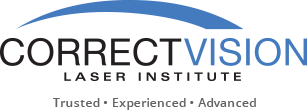Don’t Be Fooled By These Vision Myths
There are a lot of confusing vision myths circulating about what can and can’t damage your vision. While some of these misconceptions are harmless, others could lead to permanent eye problems. We reveal the truth behind these five common eye health myths.
You Can Look at the Sun Safely if You Squint
The sun may be 93 million miles away, but it’s still a powerful source of radiation. Squinting or shielding your face has little effect on the level of damaging UV rays entering your eyes. In the short term, looking at the sun can cause headaches and blurred vision. Permanent effects may include damage to the cornea or retina, injury to the lens or serious conditions such as macular degeneration. Don’t rely on squinting to protect your eyes – filter out harmful rays by wearing sunglasses with UV protection when you’re out in bright sunlight.
Screen Time Causes Vision Problems
Your mother probably warned you that sitting too close to the TV would hurt your eyes, and there’s a good chance you’ve scolded your kids about spending too much time on the computer for the same reason. However, staring at any kind of screen doesn’t actually cause eye damage. Instead, it can lead to strain or dry eyes from decreased blinking or fatigue from overuse. To avoid this, make sure to take breaks every 20 minutes to allow your eyes to rest.
Wearing Glasses Too Often Leads to Dependence
Glasses aren’t like some medications; your eyes can’t get “addicted” and stop functioning properly without them. Many people believe this eye health myth because vision problems tend to get worse over time, and they only notice changes once they start wearing glasses. If you need or use corrective lenses, skipping out on corrective lenses when you need them doesn’t result in lasting damage, but it will make daily tasks more difficult and frustrating.
Crossed Eyes “Correct” Themselves with Age
“Wandering” or “lazy” eyes are relatively normal in infants up to about six months of age, but if the condition persists, it should be corrected by a doctor. Waiting to address the problem could cause the brain to compensate on its own, leading to a lifetime of poor vision. This is called amblyopia, a situation in which vision is reduced the weaker eye due to misalignment or improper focus. If your child has a “wandering” or “lazy” eye, schedule an appointment with a doctor today.
Having Good Vision Means You Can Avoid the Eye Doctor
Just like you shouldn’t skip a physical, you shouldn’t skip an eye exam. Even if you feel like you’re in seemingly perfect health and you are not experiencing noticeable vision problems, don’t assume an eye care checkup is unnecessary . By examining your eyes, your eye doctor can determine more than whether or not you need glasses. He or she will check for signs of degeneration and other markers indicating heath conditions such as high blood pressure or diabetes. When detected early, these issues are much easier to manage.
Remember, proper eye care preserves your long-term vision health. Routine care promotes good vision for life and it’s never too early to start making your eyes a priority.
Want to more about your eye health?
CorrectVision Laser Institute is one of Florida’s most advanced practices for vision impairments with extensive experience in LASIK. Our goal is to open your eyes to the world of great vision by offering unparalleled expertise and the most advanced technology available.
Contact us today for a consultation with one of our South Florida eye specialists, located in Hollywood, Weston and Pembroke Pines!


